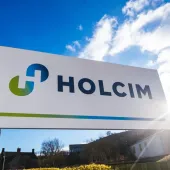Holcim to simplify Group structure in India

Company outlines plans to streamline ownership structure of Ambuja and ACC operations
HOLCIM have announced details of their plans to streamline the ownership structure of their operations in India in order to strengthen the existing platform and create value for all stakeholders.
Through intra-group restructuring, Holcim will increase their shareholding in Ambuja Cements Ltd to 61.39% and Ambuja, in turn, will acquire Holcim’s 50.01% stake in ACC Ltd.
Both Ambuja and ACC will continue to operate as separate entities with their own brands and market strategies. However, the restructuring will allow for closer back-end co-operation between the companies as well as simplifying the group structure.
The boards of Ambuja and Holcim have agreed that the transaction will be effected through a merger of Holcim India Private Ltd (HIPL), a wholly owned financial holding subsidiary, with Ambuja.
HIPL currently directly hold a 9.76% stake in Ambuja and a 50.01% stake in ACC. In a two-stage deal, Ambuja will first acquire, through a purchase, a 24% stake in HIPL for a cash consideration of INR35,000 million (approximately US$600 million), followed by a stock merger between HIPL and Ambuja.
As part of the merger, Holcim will receive 584 million new equity shares of Ambuja resulting in an increase of their ownership in Ambuja from the current 50.55% to 61.39%. The transaction is subject to both Ambuja shareholder and regulatory approvals in India.
‘This transaction further improves Holcim’s holding structure in India, strengthens the platform for future growth and is expected to generate synergy benefits of INR9,000 million (US$150 million) per annum,’ said Holcim’s chief executive officer, Bernard Fontana.
‘These benefits, which will be realized in a phased manner over two years, will be shared by both companies equally through supply chain, shared services and fixed-costs optimization. The transaction is expected to be neutral on Holcim’s earnings per share in the first full year following the completion of the transaction, and accretive thereafter.’









